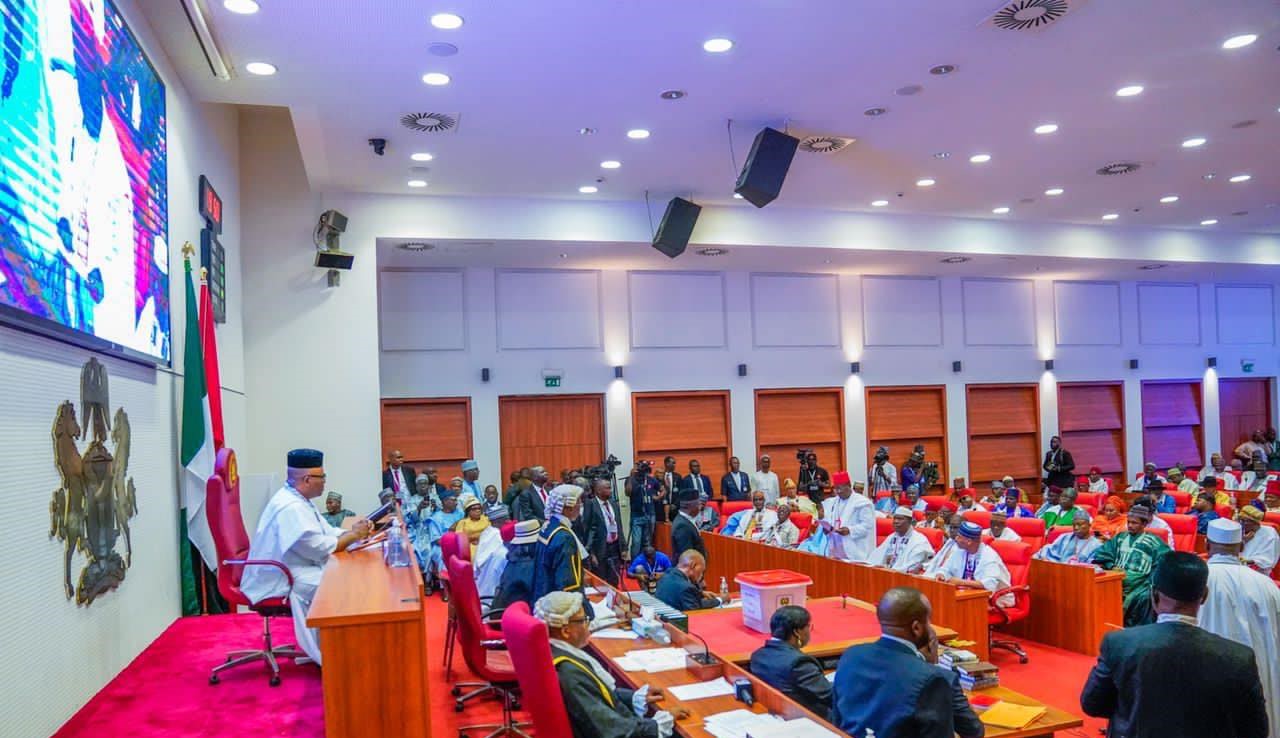By Barr. Evans Ufeli
The confirmation of President Bola Ahmed Tinubu’s state of emergency by the Nigerian Senate has raised critical concerns regarding the integrity and legality of our governance structures. The manner in which this decision was made—primarily through a voice vote—seriously undermines the constitutional principles that guide our democracy. The Constitution explicitly requires that significant actions such as the declaration of a state of emergency demand a higher standard of approval, namely, an individual counting of votes that reflect the true position of each lawmaker.
A voice vote, where lawmakers simply shout "Aye" or "Nay," is an inherently flawed method of decision-making for matters of such immense national impact. It opens the door to manipulation and misrepresentation. Reports indicate that although a majority of lawmakers reportedly opposed the state of emergency (“NAYs”), a troubling intervention by Senate President Godswill Akpabio seemingly shifted the outcome in favor of the "AYEs." This raises alarm bells—what kind of governance allows for such blatant disregard for due process? It reflects a concerning trend in Nigeria's political landscape, where the rules can be bent or broken to achieve desired ends.
The ramifications of this political maneuver extend far beyond a single vote. Approving a state of emergency through unconstitutional means sets a dangerous precedent, emboldening those in power to act without accountability or transparency. The Senate's actions betray the trust of the Nigerian people and signal an alarming distance from the democratic ideals that Nigeria has long strived to uphold. It is moments like these that challenge the very foundation of democracy and governance in our nation.
In light of these developments, it is understandable why many have expressed a sense of desperation and frustration. Calls for a "violent revolution" capture a sentiment that has been building among citizens who feel their democratic rights have been usurped. While the allure of revolution may be compelling, it is essential to approach this sentiment with caution. Violence only begets more violence and can lead to chaos that further destabilizes the country. Moreover, such actions risk the potential to alienate the very populace that desires change.
Instead, what we need is an unwavering commitment to peaceful and constitutional means of resistance. Citizens should channel their frustrations into organized, non-violent movements that can hold lawmakers accountable. Civil society, traditional leaders, and youth groups can serve as catalysts for meaningful change by advocating for true representation and transparency in governance. Protests, public awareness campaigns, and calls for accountability can accrue the pressure necessary to re-establish the rule of law and demand respect for constitutional mandates.
The Nigerian populace must engage actively with their representatives. Constituents must hold lawmakers responsible for their actions and demand the integrity their mandate requires. Legitimate movements can arise from collective action, bolstered by an informed populace that understands its rights and is unafraid to uphold them.
In conclusion, the recent actions of the Senate in confirming the state of emergency under dubious circumstances should serve as a wake-up call for all Nigerians. It is a moment to galvanize our efforts, not through violence but through peaceful resistance, advocacy, and a recommitment to the principles of democracy. The path to change may be fraught with challenges, but it is a journey worth undertaking for the sake of Nigeria’s future. Together, we can reclaim our democracy and ensure that it remains representative of the people’s will, free from the grip of those who seek to subvert it.
I shall go to Rabbi again.




